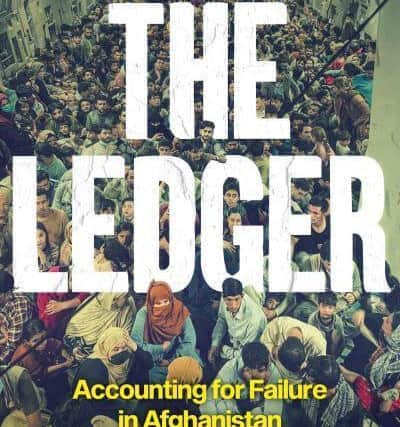Book review: The Ledger: Accounting for Failure in Afghanistan, by David Kilcullen and Greg Mills


I suspect that most readers had an emotional response to the West’s departure from Afghanistan in August after 20 years: disgust, anger, shame, grief for the lost lives of friends, comrades or loved ones. David Kilcullen and Greg Mills share these feelings. They had served in Afghanistan as advisers to armies, diplomats, politicians, to Afghan authorities as well as to the international assistance forces. They were there at the end, their 50-page introduction describing what it was like at Kabul Airport as they helped as many as they could to escape, including the Afghan President’s private secretary, who had been abandoned by his boss. The verbatim text messages as they managed this during days without sleep, and the efforts of young soldiers to protect and exfiltrate the families of Afghan colleagues amid squalor and terror, are to be admired, and they make for chilling reading.
But The Ledger is not a book of dread and sensationalism. It is a cool and forensic dissection of what a disaster the search for Al-Qaeda following the attack on their Afghan hosts, the Taliban, was to become. As one commentator once remarked, “You can’t have a war on terror. It’s like trying to have a war on fog.” And so it proved. The Taliban were defeated in 2001 and the initial error, as Kilcullen and Mills show, was not to talk to them. After all, the West had armed them in their struggle against the USSR in the 1980s. Then there was the United States’ utter misunderstanding of Pakistan. Pakistan’s border with Afghanistan cuts through tribes who don’t accept the border, and many of the Taliban (the word means “students”) were graduates of the Islamic madrassas in Pakistan.
Advertisement
Hide AdNext, when the West seemed to decide that it would be in Afghanistan for the long haul, it failed to comprehend the type of government that the country needed and proceeded to impose the wrong type of governance and to help the wrong elements of the Afghan elite to get into power. Associated with this error were attempts to develop the wrong aspects of the economy in the wrong places. Industrial estates were set up where there wasn’t an electricity supply that could power the factories. Kilcullen and Mills admit that they are not impartial in their analysis, but they do argue from a strong base. Things were got right after wars in Germany, Japan, Korea, and Cyprus, they say, and more recently in Somaliland in the Horn of Africa, where overseas advisers listened to the needs of the people and used established community systems to support the populations.


The writers find fault with senior commands of the armed forces, the Afghan government and aid agencies too, but it is the leadership of the United States, from George W Bush to Joe Biden, that comes in for the most withering criticism. To invade Iraq at the same time as attempting to control Afghanistan is seen as catastrophic, but this was compounded as the US Army then went on to use the same strategy and tactics in a totally different environment. Donald Trump flagged the withdrawal which Biden then carried out. The writers’ description of their feelings is stark: "The moral stench of this betrayal will cling to them forever, and so it should.”
My admiration for The Ledger is not confined to its forensic analysis of the subject, nor to the fact that many who come out of this disaster with some credit are British, but to the breadth of its context. The comparable mistakes in the Vietnam war are presented as a historical backdrop and Kilcullen and Mills often use literature, poems, novels, and references to writers to enhance their evaluation. More than a mere polemic, this is a fine book.
The Ledger: Accounting for Failure in Afghanistan, by David Kilcullen and Greg Mills, Hurst, 352pp, £14.99
A message from the Editor:
Thank you for reading this article. We're more reliant on your support than ever as the shift in consumer habits brought about by coronavirus impacts our advertisers.
If you haven't already, please consider supporting our trusted, fact-checked journalism by taking out a digital subscription at https://www.scotsman.com/subscriptions